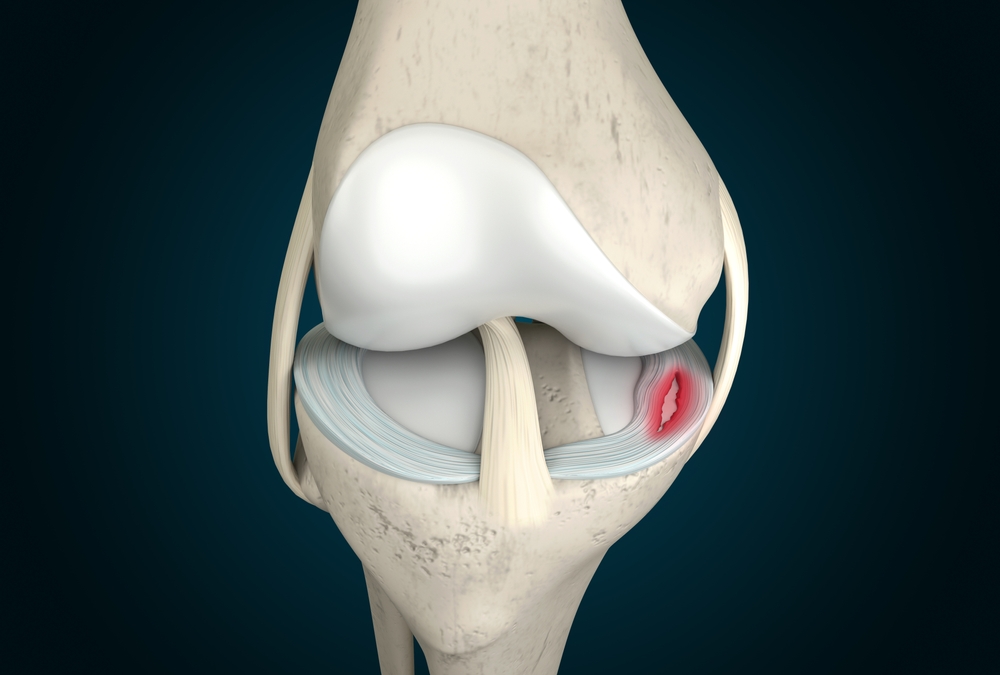Experienced a knee injury? Physical Therapists are experts in musculoskeleton conditions and will be able to easily assess your knee injury. Pacific Physical Therapy located in Port Orchard and Silverdale in Kitsap County has those experts on hand.
Meniscus Injuries
The meniscus serves as a cushion in your knee joint. Meniscus injuries are the most common knee injuries. They are commonly injured with the ACL and sometimes the MCL. There are two common types including traumatic tears and degenerative tears. Younger patients often injure the meniscus during a traumatic event such as playing a sport and twisting on a planted leg. Older patients often have chronic injuries that occur overtime rather than one specific incident. Females, older individuals, higher body mass index, lower physical activity are at higher risk for meniscus tears. In addition, those with increased age and delayed ACL reconstruction are at risk for developing a future meniscus tear.
Diagnosis and symptoms
Some signs of a meniscus tear include a twisting injury, tearing sensation at the time of injury, feeling a “catching” or “locking” sensation, or tenderness along the sides of your knee. One may experience delayed swelling in the knee that begins 6-24 hours after the injury. Your therapist may also perform some special tests in the clinic to determine a possible cause of your knee pain.
Treatment Plan for a Torn Meniscus
There are various treatment options for a torn meniscus including conservative management (physical therapy), partial meniscectomy, or total meniscectomy. The research has shown that patients who opt for nonoperative management, including physical therapy, have similar to better outcomes in terms of strength and perceived knee function in the short and intermediate term compared to those who have a partial meniscectomy.
Physical therapy treatment for a meniscus injury occurs in stages. Initially, it is important to promote progressive motion in the knee. Next, you want to be able to isolate contraction of all muscles surrounding the knee to provide increased stability. Eventually, you will progress gross strengthening of the legs in functional movement patterns such as squatting. Finally, your therapist will direct you in specific treatment and exercises for return to sport such as balance and agility. The specific course of treatment will depend on if you’ve had surgery or not and what kind of surgery is performed. Your therapist will work with you and your surgeon to follow specific protocols to get you back to your prior level of function without limitations.
If you have experienced a knee injury and need an evaluation, our clinics in Port Orchard and Silverdale do an injury screen to help you know what is the best way to address your injury.
Click here to request an appointment and one of our staff will reach out to you.
Or give us a call at 360-329-7052 to reach our Port Orchard Office or 360-625-9161 to reach our Silverdale Office, both located in Kitsap County
Jill Hoffman PT, DPT is a physical therapist specializing in treating orthopedic conditions.
- Logerstedt DS, Snyder-Mackler L, Ritter RC, Axe MJ; Orthopedic Section of the American Physical Therapy Association. Knee pain and mobility impairments: meniscal and articular cartilage lesions. J Orthop Sports Phys Ther. 2010 Jun;40(6):A1-A35. doi: 10.2519/jospt.2010.0304. Erratum in: J Orthop Sports Phys Ther. 2010 Sep;40(9):597. PMID: 20511698; PMCID: PMC3204363.

